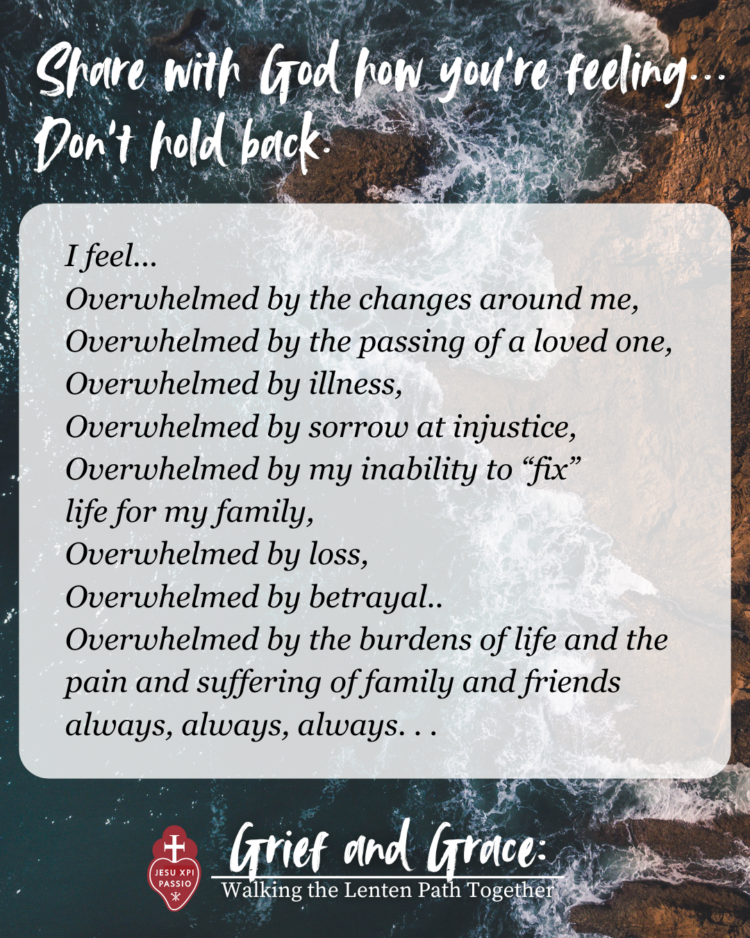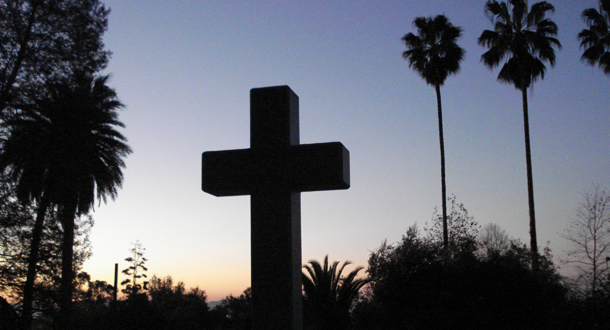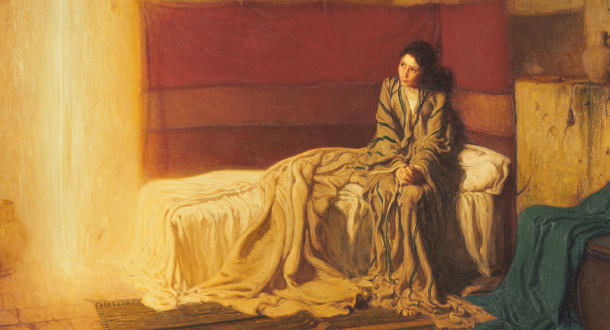
Thursday of the Third Week of Lent



Scripture:
Reflection:
What does the Kingdom of God look like? Today’s gospel tells us – or better, it shows us. “Jesus was driving out a demon that was mute, and when the demon had gone out, the mute man spoke, and the crowds were amazed.”
This exorcism led to a debate among the crowd: How did Jesus accomplish this wonder? Some rejected Jesus. Beelzebub, the prince of darkness, or literally “Lord of the Flies,” must be the power behind Jesus’ healing. In other words, demonic powers control Jesus, and therefore his healing is evil. Others took a wait and see attitude. We want more proof, they demanded. More miracles might persuade them.
These two possibilities – reject Jesus or give more proof – summarize the reaction of many in the crowd, and of many even today.
Jesus took these arguments to their absurd conclusion. If Jesus casts out demons by Satan’s hand, then by whose power do their own followers cast out demons? Did they really want to degrade the activity of their own exorcists by such logic? They were stuck in a dilemma. “Every kingdom divided against itself will be laid waste and house will fall against house,” he argued.
Then Jesus offered another alternative, one he unveiled with dramatic flourish. “But if it is by the finger of God that I drive out demons,” he said, “then the Kingdom of God has come upon you.” Jesus is telling the crowd – and us – that his exorcism was not meant to astound, or amaze, or even to give proof of the existence of God. No. This and all the wonders he performs are testimony, evidence of the arrival of God’s promised, redemptive rule. In Jesus, the Kingdom has arrived. God is breaking peacefully into this creation through Jesus to reclaim humanity from Satan’s mute grip. Jesus’ exorcism was loaded with theological meaning. Satan’s power is the power to make mute, to silence. But Jesus’ power is the power to exorcise us from Satan’s silence so that we might boldly proclaim that the Kingdom is at hand.
In this struggle between demonic silence and the proclamation of the Good News there is no neutral territory, no Switzerland. “Whoever is not with me is against me, and whoever does not gather with me, scatters.” Jesus rejects fence-straddlers. He warns us that lukewarm neutrality is equivalent to opposition to him.
Today’s gospel should remind us of the memorable remarks made by Nazi Holocaust survivor Elie Wiesel. “We must take sides,” Wiesel declared. “Neutrality helps the oppressor, never the victim. Silence encourages the tormentor, never the tormented. Sometimes we must interfere.” To remain mute in the face of injustice, poverty, and discrimination is to be complicit with the forces of darkness. He summons us to interfere, to speak out on the side of the oppressed, the victim, the tormented. Lent is a time to make a choice, to ultimately surrender to the Love of God. The Kingdom of God looks like that.
Deacon Manuel Valencia is on the staff at Mater Dolorosa Passionist Retreat Center, Sierra Madre, California.


Scripture:
Deuteronomy 4:1, 5-9
Matthew 5:17-19
Reflection:
Amnesia: A medical condition characterized by a partial or total loss of memories, facts, information and experiences.
In today’s scripture selections from the Book of Deuteronomy and the Gospel of Matthew, there are some serious references to the Law that comes from God. Moses is on the banks of the Jordan River imploring the people to not forget the commands of the Lord as they prepare to enter a new land after leaving captivity in Egypt. Jesus implores his disciples to stay faithful to the Law. But even Jesus understood that he needed to boil the Law and Commandments down to the essentials:
Love the Lord your God with all your heart, and with all your soul, and with all your mind. This is the first and great commandment. And the second is like it: Love your neighbor as yourself.
Yet we seem always to be afflicted with amnesia. Time and again we forget. We create and then worship idols. We imagine that others should be made in our, not God’s image and likeness. We raise up as contemporary “golden calves” pop stars or influencers or politicians.
Lent, at its best, is an opportunity to remember, that is, to be mindful of God’s goodness to us even when we fail to remember the source of all that is good. Even when we place our trust in idols made from our own hands or crafted from our prejudices, we can take a moment to remember…to be mindful again and hence make real again in our lives…that it is God and God’s love that gives meaning and joy to our lives.
Robert Hotz is a consultant with American City Bureau, Inc. and was the Director of The Passion of Christ: The Love That Compels Campaign for Holy Cross Province.
In whatever grief is arising for you this week, we invite you to take refuge in your senses with this music.

Solemnity of the Annunciation of Our Lord
Scripture:
Isaiah 7:10-14; 8:10
Hebrews 10:4-10
Luke 1:26-38
Reflection:
One of the commentaries for today’s Solemnity of the Annunciation reminds us of how we often assume that Mary’s inner life is a spiritual blank slate before the angel appears at her door. We know from the Magnificat (Mary’s canticle of praise in Luke’s narrative) how Mary is well-versed in the Sacred Word. Mary already has a vibrant relationship with God before Gabriel shows up. It is not that the Annunciation leads her out of doubt and into faith; it is that her encounter with the angel leads her out of certainty and into holy bewilderment.
Mary hears she is to be overshadowed, that is, God will work in “cloudy,” overshadowing ways, as God did with Moses… When Moses wanted to see God face-to-face, God responded that Divine Presence would overwhelm him, searing his imagination. No one could see God face-to-face and survive.
So, God works INDIRECTLY, by OVERSHADOWING us, in CLOUDY, OBSCURE or MURKY ways. Not just in the lives of Moses and Mary… as this isn’t merely history, but mystery, OUR mystery.
That verb, “to overshadow” (or “come upon”) is a wonderful word! How are angels bringing Good News (Gospel) to you today? Maybe a grandchild who tells you that you are the best cook in the world! Maybe it’s the newspaper delivery person who makes an extra effort to place the paper just outside your door in inclement weather. Or perhaps your spouse who speaks of a God-experience they had today while you’re sharing a glass of wine together.
This week the Vatican released Pope Francis’ message for the World Day of Prayer for Vocations. In this holy year designation of “Pilgrims of Hope,” Francis’ message recalls that every vocation—be it to ordained ministry, consecrated life, or the laity—should offer the world a sign of God’s hope for every person. He noted that young people frequently feel dismay and confusion when they look to the future, given the background of insecurity, identity crises, unjust treatment of others, and general indifference. “Yet the Lord, who knows the human heart, does not abandon us in our uncertainty,” said the Pope. “He wants us to know that we are loved, called and sent as pilgrims of hope.”
Happy Annunciation!
Fr. Jack Conley, CP, is the local superior of St. Vincent Strambi Community in Chicago, Illinois.
In my grief, God, I come before You with honesty. I am reminded that many of the psalms are laments where the psalmists did not hold back their anger with You. Even Your Son, Jesus, during His crucifixion, cried out, "My God, My God, why have You abandoned me?"
I bring my sorrow, my questions, even my anger, to You now, seeking Your understanding and comfort. It's just so painful, and I'm afraid. Please help me, God, in these difficult moments to know that I am held in your love. Amen.


Scripture:
Reflection:
Welcoming Jesus
A wonderful experience in my life was kneeling at the altar in the Church of the Annunciation in Nazareth, where Jesus took on our nature. Written under the altar in Latin is “Verbum caro hic factum est” The Word was made flesh here. Tomorrow’s feast of the Annunciation celebrates and reminds us of the most wonderful event ever to happen in the whole galactic universe! Mary’s yes to God to receive and welcome the Father’s Son in our human nature was the moment of the incarnation of God. God loved us so much that He became the size of a pinhead, a zygote! Our awesome God Who creates and empowers trillions of galaxies comes to us.
The most important and amazing thing in our life is to welcome Him! Today’s Gospel tells us that Jesus after living 30 years in the then small village of about 300 people, he was not welcomed home! They missed the time of their life! “They rose up, drove him out of the town, and led him to the brow of the hill on which their town had been built, to hurl him down headlong. But he passed through the midst of them and went away.” The inspired Greek text used a very strong and violent word for drive out “exballo” (throw out). One of the saddest words in the New Testament is “He went away” (poreuō)
Do we welcome Jesus? He has been with many of us for a lot more than 30 years. There are 11 words for welcome in the NT. The one used in today’s Gospel is dexomai is used 56 times. We can see how important it is to welcome or receive Him in our lives. Many times each day we must pause even for a minute to welcome Him! He is very close to us 24/7. Pray to Holy Spirit to help us to be like Mary. No human being ever welcomed Jesus like our Blessed Mother! Don’t walk away from Him and lose the opportunity of your life to be with Him.
Fr. Bob Weiss, C.P., preaches Parish Missions and is a member of the Passionist Community in Louisville, Kentucky.
